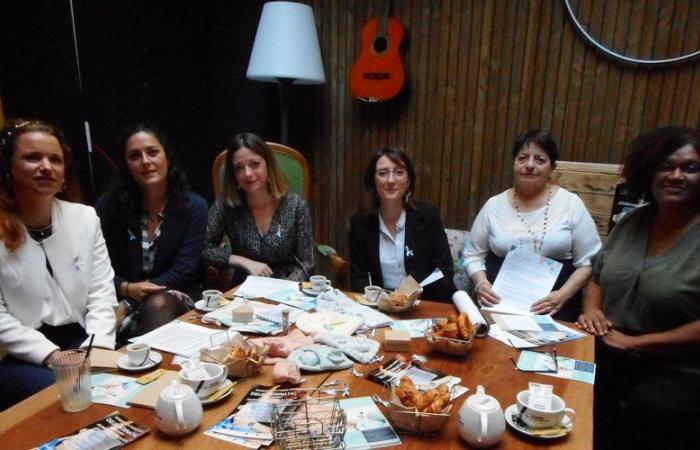
the essential
In the department, each year, around 200 couples lose their baby during pregnancy, childbirth or in the first days of life. Perinatal Mourning Pau-Tarbes helps them overcome this tragedy.
Losing a child is tragic and even if there is no comparison, it is perhaps even worse when he or she did not survive the pregnancy, childbirth, or he died when he was only a few hours old, what was called sudden infant death syndrome, now called “unexpected death”, as if that changed anything. In any case, it is a terrible ordeal, the members of the Pau-Tarbes Perinatal Mourning association know something about it, they have been touched by this particular bereavement, sometimes even concerned… “It’s difficult, because it remains a taboo subject and so “different”, many couples feel sidelined after the departure of their child, loved ones sometimes move away, out of modesty, for fear of contacting them, when precisely, they need of support”, summarizes Marine Alvarez, the president of this association.
A huge need for support
Which organizes discussion groups during which those called “paranges”, “mamanges” or even “papanges” can exchange ideas. Thanks to donations, the association also offers small “kits”, based on pouches and “bunny nests”. A gesture that seems trivial, but which is essential. “The idea is to continue to keep the baby alive in memories, to relieve the suffering. Because medical staff are helpless to deal with their tragedies, due to lack of training, childcare workers hesitate to talk about it, for fear not to choose the right words. We intervene alongside them.” And then there are all the administrative hassles. The legal framework specifies that a child is declared “alive” from 22 weeks of pregnancy, and that he is a victim of the unexpected death of the infant up to 7 days of life. “We go beyond these “limits” in our interventions. And as long as we are not confronted with them, we cannot imagine the burden of administrative acts. First there is the autopsy, which can last several weeks. Sometimes, some parents do not collect the body, and cannot mourn properly. Then there are funerals, civil status, and legal issues, for example whether or not to take parental leave.
Addressing “life after”
For 3 years, the association has been organizing an awareness day, on the sidelines of World Day, October 15. “Usually, we did it at the Ormeau clinic, but this year, it’s the town hall which welcomes us, it’s better, because it’s a neutral place, many parents had difficulty in return to the clinic…” An initiative made possible by municipal will. “I received the association, and with the mayor, we immediately agreed to help them, first by providing them with premises at the MDA de l’Arsenal, then by helping them set up this event, which will take place on Saturday, October 19, in the village hall of the town hall.” On the menu for this day, several speakers, doctors, psychologists, but also the testimony of a “parange”, author of a book on the subject. “The idea”, continues Marine Alvarez, “is to prepare for the ‘life after’, the return home, the return to work after this ordeal. And also, without forgetting the past, turning towards the future, thinking about having other children. We are also here to support future pregnancies. In a word, how to find ourselves.





